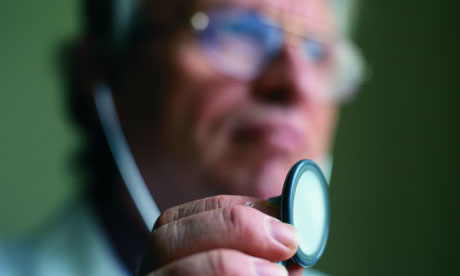The western concept of an autonomous self does not account for how a doctor's beliefs can influence the patient's health

'A contributing factor of the effectiveness of the placebo is the reputation, charisma and convictions of the doctor administrating it.' Photograph: Stockbyte/Getty Images
A recently published study declared that 97% of 783 GPs admitted that they had recommended a sugar pill or a treatment with no established efficacy. This is not a scandal because a placebo is an effective, proven intervention that stimulates our bodies' own capacity to heal itself.
The placebo effect is present in every medical intervention, not just those procedures, such as sugar pills, where the placebo effect is the only known agent at work. To understand exactly how it works would be the equivalent of understanding in full how our mind influences our physical heath, and I expect we still have plenty more to discover in that area.
The concept of the self being an autonomous being is a deeply held belief in western civilisation, but we affect each other all the time. If our doctors wholeheartedly believe that the treatments they are giving us have every chance of working, we are more likely to believe it too. I don't know if this is the effect of mirror neurons or quantum physics, but it happens. It's not that the doctor is just a technician treating our disease, but is also a person who influences us. Bedside manner is more than an optional add-on luxury. If a doctor's influence makes us feel more positive about our health, it will make us more optimistic, and our optimism has a direct effect on our health. For example, research has shown our expectations about recuperation or complications significantly serve as self-fulfilling prophecies for how we recover after surgery.
In 1955, the inventor of the double-blind design form of testing, Henry K Beecher, discovered that 35% of patients found satisfactory relief from a placebo. It is thought that a contributing factor of the effectiveness of the placebo is the reputation, charisma and convictions of the doctor administrating it, as these affect a patient's belief system. In Beecher's study, this might have been missing, because the dispenser of the drug would have known that the drug might just be a sugar pill – so this 35% may be a conservative estimate of the efficacy of placebo.
These days, when testing the placebo effect, we can get the MRI scanner in on the act. Tor D Wager conducted a study in 2004 with a placebo cream he told the subjects would take away pain. He then inflicted pain on them and watched them in the scanner. Those who had been given the cream (the control group had nothing) showed "placebo effect patterns" in the prefrontal cortex. This part of the brain activates when anticipating pain relief and triggers a reduction of activity in pain-sensing areas of the brain. Wager suggests that this interplay within the prefrontal cortex may also trigger a release of pain-relieving opioids in the midbrain.
So when you look your toddler in the eye and kiss his boo boo better, you are probably setting this process into play. You could say, "let me trigger a reduction in your pain sensing brain activity", but "mummy kiss it better" works fine.
